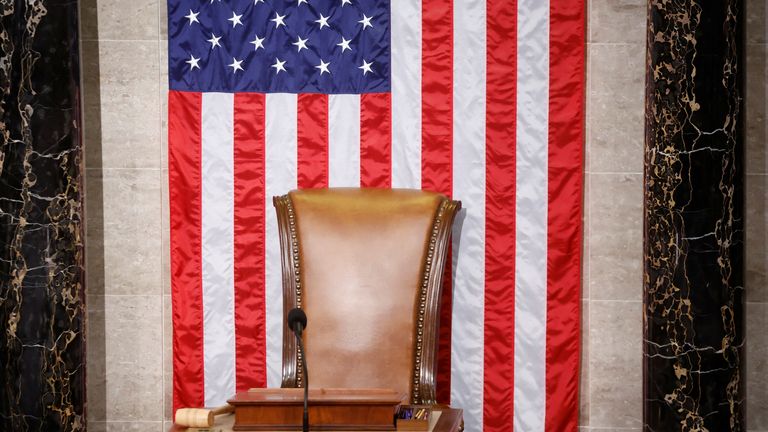Republican Kevin McCarthy is inching towards securing enough support to become speaker of the US House of Representatives – with 15 more people voting for him in the latest ballot.
But the extra backing for Mr McCarthy is still not enough for him yet to succeed outgoing Speaker, Democrat Nancy Pelosi.
Therefore, members will be asked to vote for a 14th time – and this time, just between Mr McCarthy and Hakeem Jeffries, the Democratic leader, without a Republican challenger to siphon their votes away.
Several Republicans had walked out of the chamber during the fourth day of proceedings after their colleague Matt Gaetz of Florida told the floor: “We do not trust Mr McCarthy with power.”
The GOP took control of the House – the US lower chamber – following the midterm elections in the autumn, where they secured a slim 222-212 majority.
The election of the Speaker is normally a formality, with the leader of the largest party in the House generally a shoo-in for the job.
However, recent splits in the Republican party have led to the first defeat of a nominee in a century.
At least 200 Republicans have backed Mr McCarthy in each of the other votes this week and although fewer than 10% of Republican politicians have voted against him in the House, it remains enough to deny him the 218 he needs.
Sessions to decide the Speaker have rumbled on for hours – one even topping eight hours.
The stalemate has raised questions about the Republicans’ ability to govern over the coming two years. But others say Mr McCarthy may be emboldened as a survivor of one of the more brutal fights for the Speaker’s gavel in US history.
His turnaround in voting numbers appeared to come after he privately agreed to many of the detractors’ demands – including the reinstatement of a longstanding House rule that would allow any single member to call a vote to oust him from office.
That change and others mean the job he is fighting so hard to gain will be somewhat weakened.
